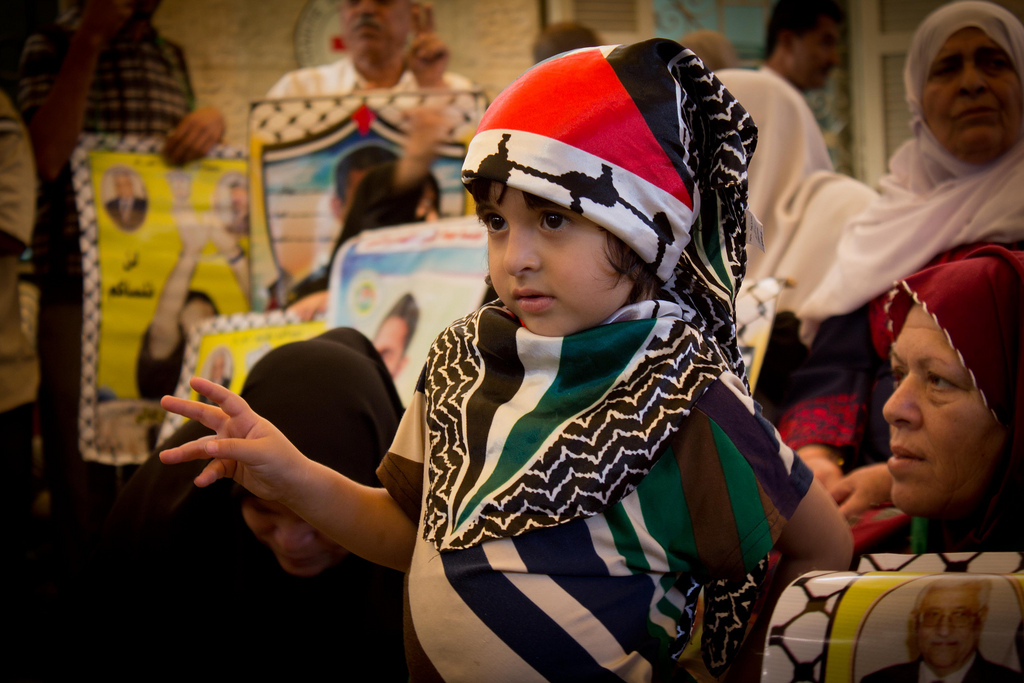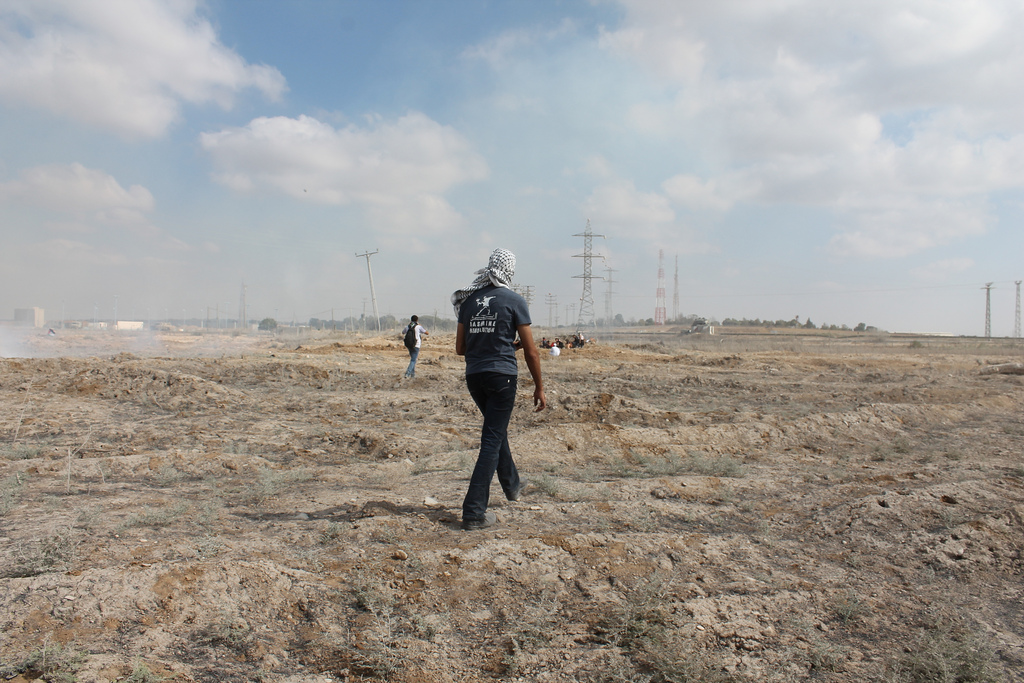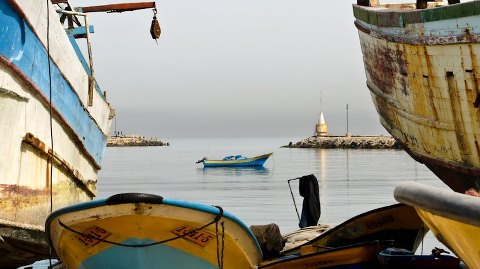Category: Gaza
-
Photos: Detainees’ families and supporters hold weekly vigil in Gaza Red Cross
2nd October 2013 | International Solidarity Movement, Gaza Team | Gaza, Occupied Palestine On Monday morning, hundreds held a weekly sit-in in the International Committee of the Red Cross’ Gaza City office to support Palestinians detained by Israel. The regular gathering, which began in 1995 and has continued for nearly two decades, brings together families…
-
Photos and video: Israeli forces teargas Palestinian demonstrators at Intifada march east of Gaza
29th September 2013 | International Solidarity Movement, Gaza Team | Gaza, Occupied Palestine On Friday afternoon, Israeli forces fired tear gas canisters at Palestinian demonstrators during a protest by the Nahal Oz checkpoint east of Gaza City. The demonstration followed a march from Palestine Square (al-Saha) organized by the Intifada Youth Coalition to commemorate the…
-
Palestinian fisherman injured and his finger amputated as Israeli naval troops fire at fishing boat in Gaza sea
21st September 2013 | Palestinian Centre for Human Rights | Gaza, Occupied Palestine On Wednesday, 18 September 2013, a Palestinian fisherman was injured and consequently one of his fingers was amputated when Israeli naval troops opened fire at Palestinian fishing boat on board of which 5 fishermen were sailing nearly 6 nautical miles off Gaza Harbour. The…



